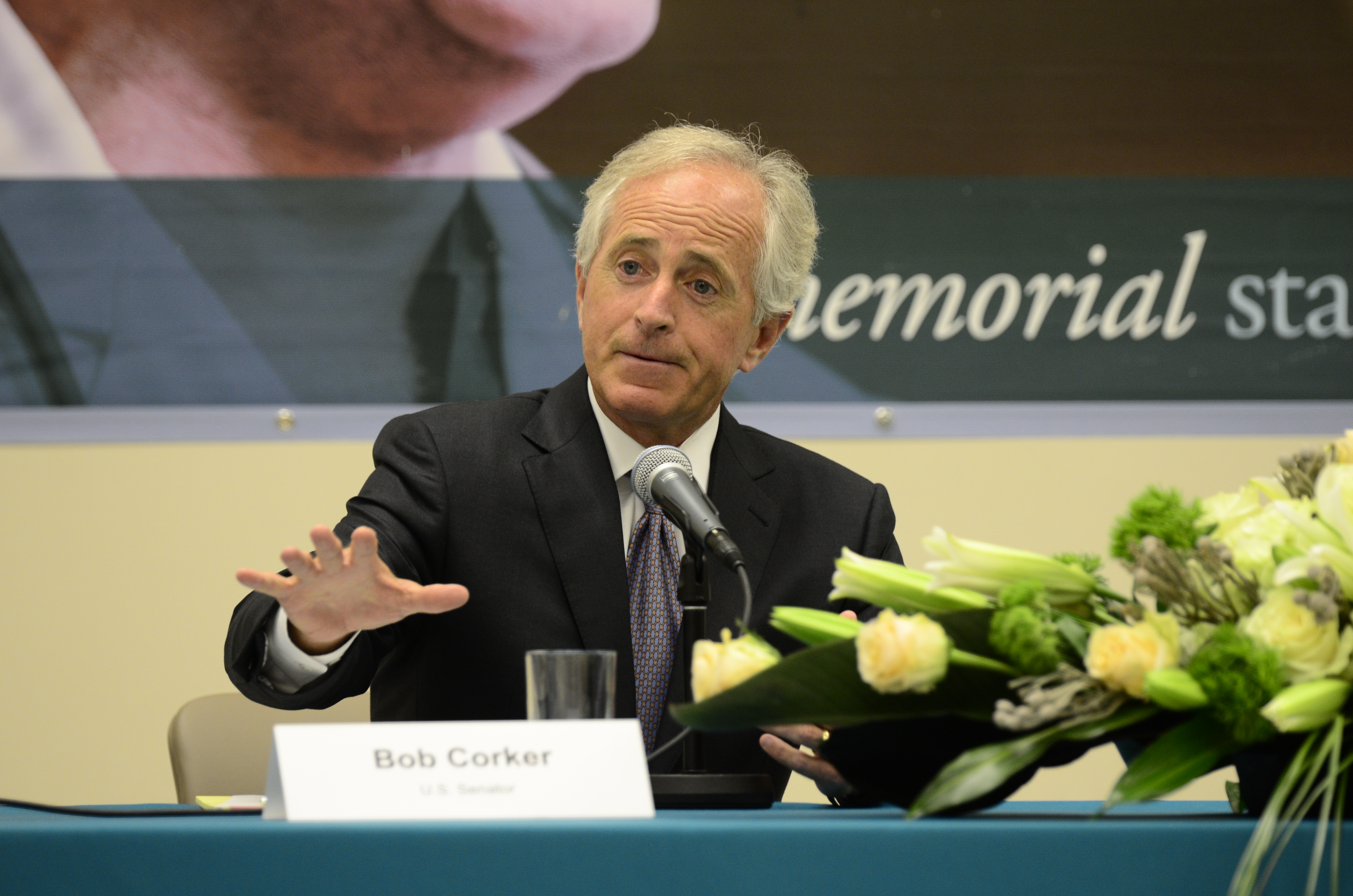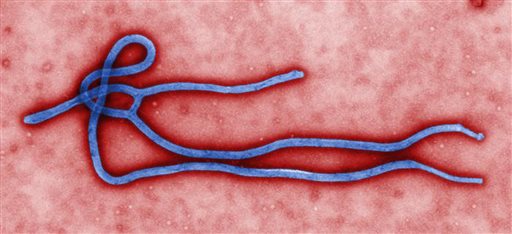In the weeks since the first Ebola case diagnosed in the U.S. was revealed in Dallas, local health service officials have scrambled to make sure they're ready for the virus.
Hospitals ran drills and rushed to upgrade protective gear. Nurses practiced taking off special suits slung with chocolate syrup that mimicked bodily fluids. Health department officials have filled their schedules with meetings about the still-rare disease.
The result, they say, is a local health system that's ready to handle isolated cases. But hospital and health care officials say no amount of preparedness will prevent the massive strain that would likely be placed on a hospital if an infected patient arrived in Chattanooga.
U.S. Sens. Bob Corker and Lamar Alexander hosted a fact-finding roundtable at Catholic Health Initiatives Memorial Hospital on Friday. They asked representatives from Erlanger Health System, CHI Memorial, Hospital Corporation of America and the Hamilton County Health Department about the city's preparedness and steps they could take to support a response. Also in attendance were Chattanooga Mayor Andy Berke and U.S. Rep. Chuck Fleischmann.
HCA Chief Medical Officer Dr. Jeffrey Guy said a "diarrheal" disease like Ebola poses a particular set of logistical challenges.
Large units would need to be set aside to treat even one patient, and special transport would have to be arranged for the patient's solid waste to prevent spreading the infection, Guy said. If a patient needed to be transferred, special ambulances would need to be tracked down.
"You have to do this walking and chewing gum at the same time, because in this community and other communities, people are still going to be delivering babies," Guy said. "They still need heart surgery. They still have car accidents. And taking care of that one or two Ebola patients will constrict all other resources past it, and perhaps create a health problem of another type."
Corker asked why local facilities aren't planning to send patients to one particular facility to consolidate resources and keep costs low. CHI Memorial's James Hobson pointed out that as testing times become shorter - a recent case in Memphis tested negative in about eight hours, Barnes said - the likelihood of a patient being treated locally at all diminishes.
With Emory University Hospital - which has demonstrated its ability to successfully treat Ebola cases - just over two hours away in Atlanta, a smarter plan might be to send a patient south, Hobson said.
Even a single patient could consume personnel and resources that would normally be devoted to fighting other problems. No hospital has a staff member sitting in wait to deal with an Ebola case, said CHI Memorial Dr. Mark Anderson, an infectious disease expert. Hospitals also will wage a war against public perception, since word of a confirmed case would likely cause panic and clear emergency rooms.
And a full-scale outbreak would be a completely different scenario.
"It is very difficult to be prepared for an epidemic," Erlanger President and CEO Kevin Spiegel said.
The county has plans for the flu, smallpox and anthrax, but will need to update protocols to deal with Ebola, Hamilton County Health Department Administrator Becky Barnes told the senators. In the past few weeks, she and her staff have dedicated nearly all their time to Ebola preparation, she said.
Anderson expressed concern about the availability of Centers for Disease Control-recommended protective gear. The recommendations have been through several iterations and become increasingly comprehensive since two Dallas nurses were infected while treating a patient from West Africa.
Anderson asked that the senators work to keep prices low, voicing concerns about possible price gouging around the country, and warned against stockpiling by other facilities.
Corker and Alexander said they support a robust international response to combating the disease in West Africa, where the outbreak began and has been growing exponentially for months.
Alexander said he supports CDC-recommended quarantines of those who have recently traveled to those areas. He and Iowa Sen. Tom Harkin also plan to introduce a bill they say will speed up the process of approval for drugs meant to combat the disease. That should be addressed during the session in November or December, Alexander said.
"I can't imagine what opposition there would be to it," Alexander said.
Contact staff writer Claire Wiseman at (423) 757-6347 or cwiseman@timesfreepress.com. Follow her on Twitter @clairelwiseman.
Previous news report:


